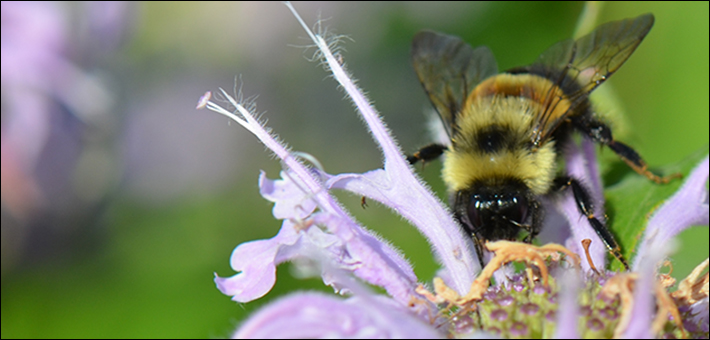A new pesticide is all the buzz
Bees’ fuzzy yellow bodies and hairy legs are custom-built for picking up pollen. Nothing can distribute the yellow powder more efficiently—something farmers that shell out for commercial beehives every growing season know all too well. And starting with this fall’s growing season, bees may be given some cargo to carry on their outbound journey to the blossoms: pesticides.
EU ban on bee-killing insecticides
The world’s most widely used group of insecticides will be banned from all fields within the next six months by the European Union. The use of neonicotinoids will be prevented in any manner with the aim of protecting important insect pollinators such as honeybees which are known to be vital for global crop pollination.
Buzzing activity around pollinator health
By Anu Veijalainen, CABI. Reblogged from CABI Hand-picked blog. Yesterday I cherished the start of spring in England by attending an event devoted to pollinators and pollination at the University of Reading. Most presentations at this meeting organised by the Royal Entomological Society were understandably about bees, but we also heard a few talks highlighting the…
Four new bee species described in Australia – many more remain unidentified
by Miroslav Djuric, DVM, CABI. Reblogged from CABI’s Hand Picked blog. Bee specialists from South Australia have described four new native bees. Three of these bee species have been described as having narrow faces and very long mouths, allowing them to feed on slender flowers found on the emu bush, a hardy native of the…
European Union Vote To Restrict Neonicotinoid Insecticide Use
After a European Commission vote yesterday (Monday 29th April 2013), Europe will enforce the world’s first continent-wide ban on neonicotinoid insecticides after concerns about their non-target impact on bee pollinators. The vote by the 27 European Union member states on whether to suspend the use of neonicotinoid insecticides was supported by 15 nations. The UK…




